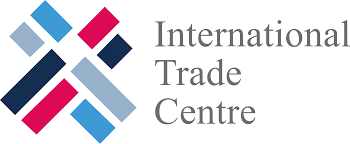World of Coffee Dubai continues to be a key platform for global coffee entrepreneurs—especially African producers—to connect with buyers and industry players. Highlighting naturally processed coffees, they aimed to position Africa as a reliable sourcing hub for Gulf markets.
African entrepreneurs are redefining the future of coffee, building strong brands while creating lasting impact in their communities.
At World of Coffee Dubai 2025, they found more than just a platform – they accessed a gateway to the Gulf and emerging export markets across Asia.
But for John Francois of Ghana’s Asili Coffee and Willy Kanyinda Kadima of Cocoi Café in the Democratic Republic of Congo, the real opportunity came in the form of new partnerships and valuable market insights.
‘The United Arab Emirates is critical for our long-term strategy,’ said John. ‘We’ve already identified interest in some countries in the Gulf region and are preparing to negotiate further deals. The scramble for affordable, high-quality coffee is real – and Africa is well positioned to deliver.’
Willy echoed this optimism. ‘We connected with Chinese exporters interested in Congolese green coffee. It’s a chance to introduce our unique Robusta profiles to new markets and show what the DRC can offer.’
The Gulf Cooperation Council (GCC) region is fast becoming a key destination for African coffee, combining historic appreciation for the beverage with modern demand for specialty, ethically sourced products. Dubai’s logistics, investor interest, and fast-growing e-commerce scene provide fertile ground for African brands.
‘Africa’s proximity to the region gives us a competitive edge,’ said Willy. ‘Shorter shipping times, lower costs – plus growing investor attention to African coffee make the GCC a strategic market.’
African coffee gaining ground
Beyond business, both entrepreneurs stressed the importance of impact at origin. For John, that means fair, prompt payments and exploring complementary livelihood activities.
Willy adds that meeting EU deforestation regulations is not just about compliance – it’s about ensuring farmers are part of a sustainable, traceable supply chain that commands premium value.
Looking ahead, both see African coffee gaining ground. Rising Arabica prices are turning attention toward high-quality Robusta, while international buyers are increasingly drawn to unique profiles and origin stories.
‘People want traceability, sustainability, and authenticity,’ said Willy. ‘Africa has all three – and we’re just getting started.’
Their visit was supported by ITC’s Alliances for Action under the ACP Business-Friendly programme funded by the European Union and the Organisation of African, Caribbean and Pacific States (OACPS).
As global coffee trade adapts to shifting supply and demand, Africa’s entrepreneurs are proving that the future of coffee may very well be brewed closer to home — and sipped in cafés across the Gulf.
Distributed by APO Group on behalf of International Trade Centre.


